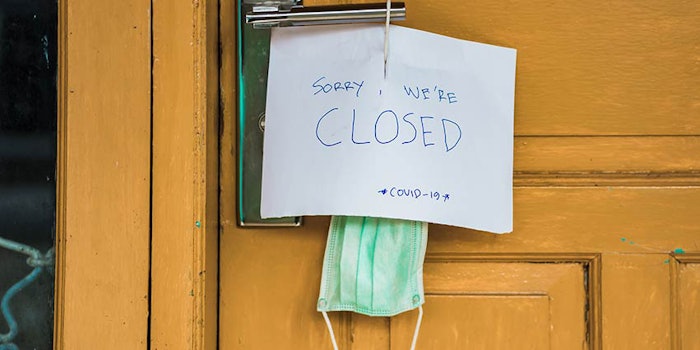
Zenoti has compiled a list of managing center closures, managing restricted hours, staying in touch with guests and taking care of staff, to help its clients navigate business operations during the COVID-19 pandemic
Zenoti has compiled a checklist in an effort to help business owners navigate operations amid forced closures, health restrictions of local communities and other disruptions resulting from the COVID-19 pandemic.
Related: 10 Ways Beauty Professionals Can Stay Afloat During COVID-19 Outbreak
Manage Center Closure
- Contact guests and make them aware of canceled or rescheduled appointments.
- Let guests know they will not incur cancellation fees.
- For the days closed, mark the days as leave in Zenoti to ensure guest’s do not inadvertently book appointments.
- Pause the Always On and Scheduled campaigns to ensure guests do not receive marketing messages and offers while temporarily closed.
- If Smart Marketing is enabled for the business, reach out to Zenoti Support and have them turn it off.
- If guests have purchased recurring active memberships or have scheduled payments set up for their packages, businesses may want to pause auto charging the guests’ cards.
- Contact guests with active recurring memberships or series packages and let them know auto charges will be stopped until the business opens again.
- Extend the validity of memberships, series packages, gift cards and loyalty points for the duration of the closure.
- If the business is still receiving or dispatching products, ensure there is a plan in place for receiving or shipping them.
- Post a notice on the window or entrance to let guests know of the closure.
- If plans were made to have employees answer phones when you are closed, test the setup and ensure that the designated staff have access to Zenoti. If the business plans to have a recorded message, ensure it clearly calls out the date when the center will reopen.
- If the business uses Zenoti Connect, set up the Autoresponder to send an automated response to guest’s messages during the temporary closure.
- If the business owner prefers not to receive daily reports during the closure, they can turn daily reports off.
Manage Restricted Center Hours
- Identify the guests whose appointments will be affected by the restricted operational hours. Use the Appointment Details report to identify guests whose scheduled appointments fall outside the new operating hours.
- Contact the impacted guests and let them know their appointments are canceled or rescheduled.
- Let guests know that they will not incur any cancellation fees.
- Change the center’s operating hours to ensure that guests do not inadvertently book appointments (either online or by calling in) outside the new business hours.
- Optionally extend the validity of memberships, series packages, gift cards, and loyalty points for the duration of the modified working hours.
- If the business is expecting to receive products, ensure they will arrive during the revised operating hours.
- Post a notice on the window or entrance to let guests know about the new business hours.
- If the business owner uses Zenoti Connect, they can set up the Autoresponder to send an automated response with the new operating hours when a guest messages the business after the center is closed for the day.
Stay in Touch with Guests
- Send weekly or fortnightly text or email messages to your guests. Consider using templates to make messaging attractive.
- Keep the contact list of all guests handy should the business owner need to personally reach any of them.
- Update website or webstore with messages communicating temporary closure of the center or revised operational hours.
- Use social media pages to give guests updates on the center, opening hours, reopening dates and availability of staff. Guests will want to know how the business is doing and when they can expect to utilize its services again.
- While it’s important to have a sound communication strategy for guests, businesses may also need to send out messages to all employees. To send an email or text message to all employees, create a target segment of all active employees and send messages as a text or email.
Take Care of Staff
- Ensure there is adequate soap and water to let them wash up before and after an appointment.
- Constantly replenish sanitizers to let them protect themselves before and after an appointment.
- If an employee is feeling under the weather, ask the employee to take the day off. You don’t want a sick employee providing a service or greeting customers at the front desk.
- It is also important to educate employees as how they can keep themselves safe while providing services.
- Remind them to wash their hands, all the way to the elbows, before and after a service.
- Provide them with face masks that they can use when performing services.
- Remind them to cough into their arms and not into open space.
- Disinfect all equipment before and after a service.
- Provide disposable wipes so they can clean all equipment before and after use.
- Apart from employees, it is also important that guests follow certain cleanliness protocols. This will ensure a safer experience for them and for your employees.
- Provide sanitizers at all entrances, outside toilets, and at every door. Ask employees and guests to use them when they enter the premises or move from one room to another.
- Provide tissues so that people may use them to cover their mouth when they cough or dry their hands after washing.
- Provide disposable wipes to clean any items they have placed on tables or desks.
- Ensure there is signage throughout the center reminding people of proper hygiene.
- Furthermore, it is important to provide support and reassurance to employees with regard to their income during these troubled times.
- Look at finances and make a realistic projection on how long the business can continue to pay employees.
- Consider setting up a fund that can be used to continue to pay them.
- Reach out to regular customers to contribute to the fund.
- Offer gift card promotions that contribute to the fund with the promise of services once business resumes.
- With schools and colleges closed, employees may also need extra time to care for their children. To support them, set up the roster with smaller shifts so that they can check in on their children more often.










